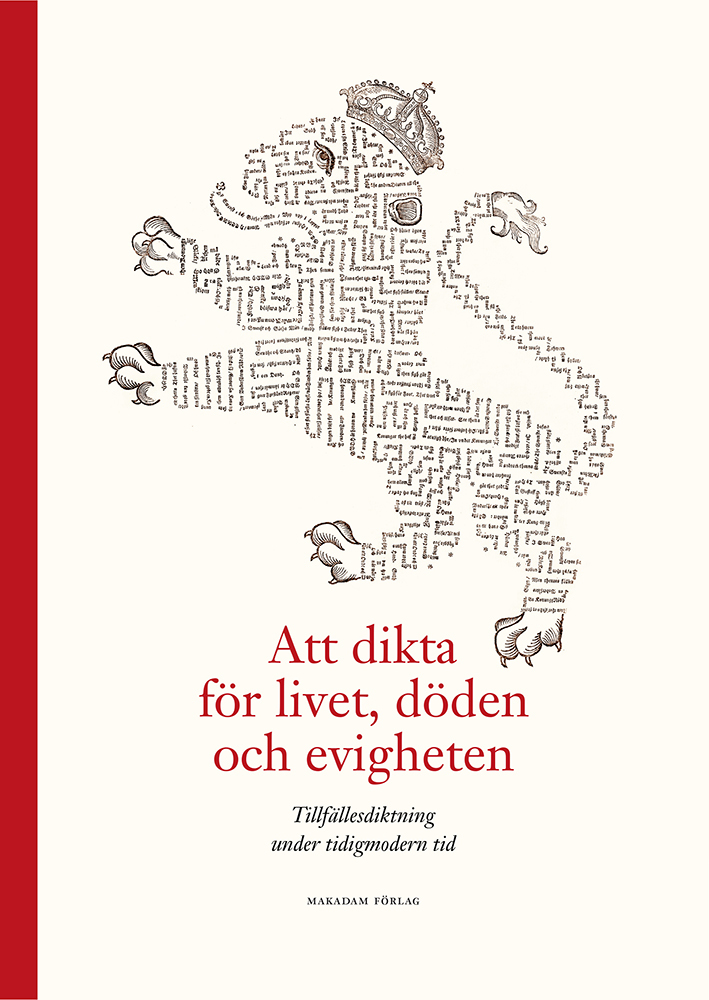Publication of the first English overview of occasional poetry from Estonia and Livonia

The first extensive 820-page multilingual handbook of early modern occasional poetry in the Nordic countries “Att dikta för livet, döden och evigheten: Tillfällesdiktning under tidigmodern tid” was published in November 2020 in Sweden (Göteborg: Makadam). The opening section of the handbook, which gives an overview of the main developments of the occasional poetry tradition in different Nordic regions, contains the first compact English account of occasional poetry from Estonia and Livonia. The chapter, written by UTKK`s senior researcher Kristi Viiding, is based on the current state of Quellenforschung and provides an updated chronological-functional approach to the cultivation of occasional poetry.
Compared to the opinions of previous researchers, it stresses, that the humanist lyrical tradition existed in Estonia and Livonia even before the Reformation and contained notable satirical elements alongside texts of praise. The chapter continues by arguing that although originally occasional poetry responded to the need for inscriptions on art and everyday objects, at latest by the second half of the 16th century it was increasingly becoming a component of printed literary works; from the 1630s onward, also of song lyrics. Therefore, Estonian-language occasional poetry, which grew out of Latin and German occasional poetry in the 1630s and was first cultivated by foreigners, then, at the latest by the 1700s also by Estonians and Latvians, is important not only as a forerunner of Estonian and Latvian verse albums of the 19th and 20th centuries, but also as one of the points of departure of newer folk songs.
Thus the chapter provides the anglophone research community with an overview of the intensive research and cataloging activities of the last decades on occasional poetry, the results of which to date have been mainly published in Estonian and German.
